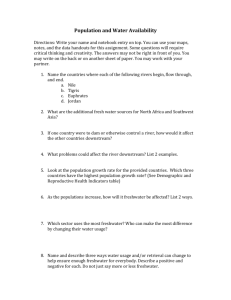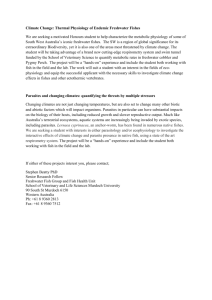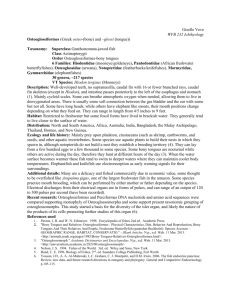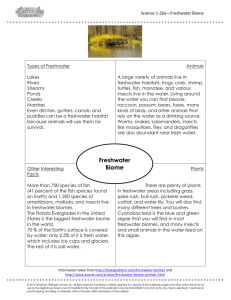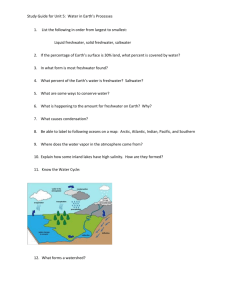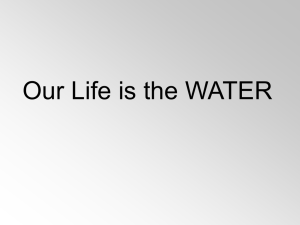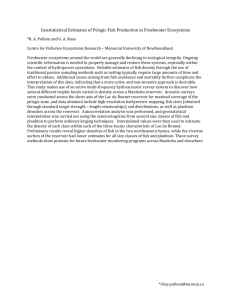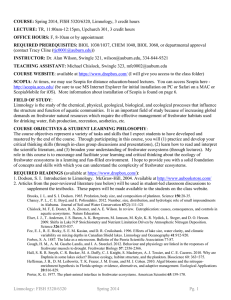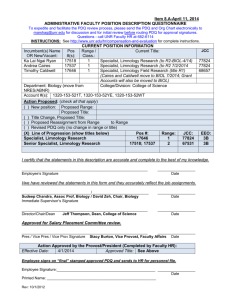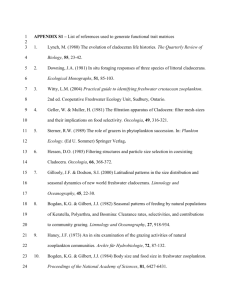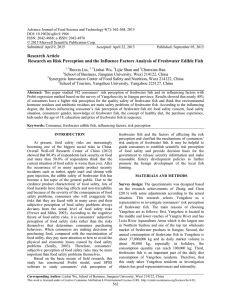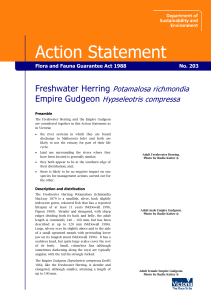COVENANT UNIVERSITY COLLEGE OF SCIENCE
advertisement
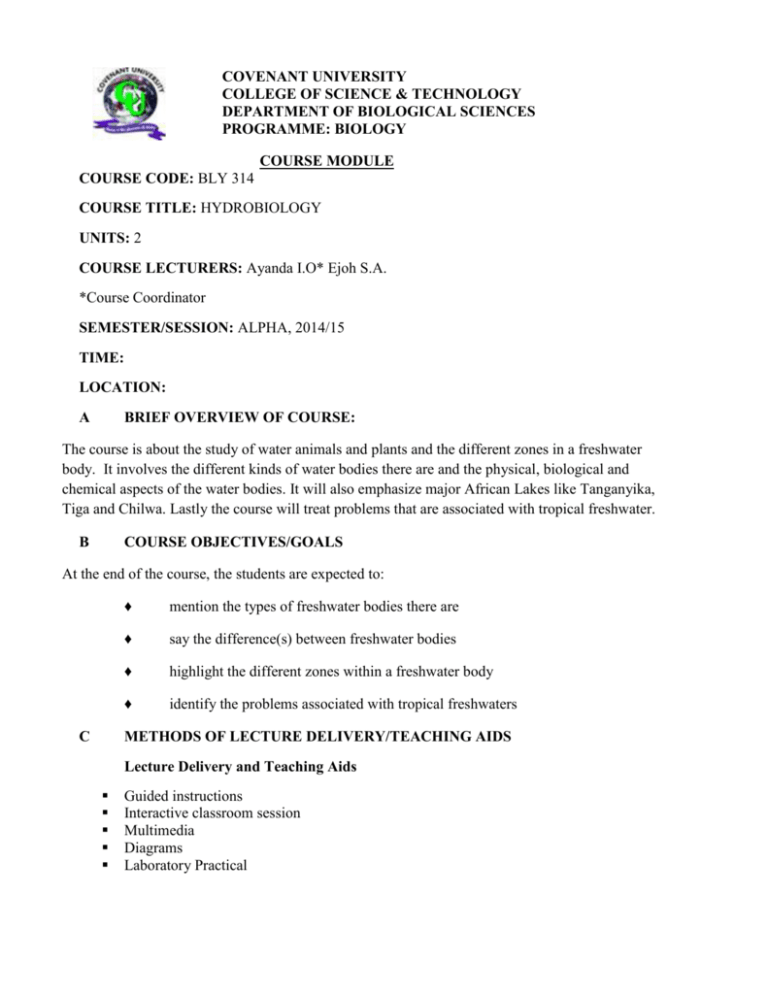
COVENANT UNIVERSITY COLLEGE OF SCIENCE & TECHNOLOGY DEPARTMENT OF BIOLOGICAL SCIENCES PROGRAMME: BIOLOGY COURSE MODULE COURSE CODE: BLY 314 COURSE TITLE: HYDROBIOLOGY UNITS: 2 COURSE LECTURERS: Ayanda I.O* Ejoh S.A. *Course Coordinator SEMESTER/SESSION: ALPHA, 2014/15 TIME: LOCATION: A BRIEF OVERVIEW OF COURSE: The course is about the study of water animals and plants and the different zones in a freshwater body. It involves the different kinds of water bodies there are and the physical, biological and chemical aspects of the water bodies. It will also emphasize major African Lakes like Tanganyika, Tiga and Chilwa. Lastly the course will treat problems that are associated with tropical freshwater. B COURSE OBJECTIVES/GOALS At the end of the course, the students are expected to: C ♦ mention the types of freshwater bodies there are ♦ say the difference(s) between freshwater bodies ♦ highlight the different zones within a freshwater body ♦ identify the problems associated with tropical freshwaters METHODS OF LECTURE DELIVERY/TEACHING AIDS Lecture Delivery and Teaching Aids Guided instructions Interactive classroom session Multimedia Diagrams Laboratory Practical D. E. COURSE OUTLINE Module 1 Hydrobiology and Limnology Week 1 Definitions of Hydrobiology and Limnology Module 2 Physical and Chemical properties of Water Week 2 Water Cycle, General properties of water and Optical properties of water Week 3 Thermal stratification Module 3 Tropical and Meromictic Lakes Week 4 Lake Tanganyika, types of water movements Week 5 Limnological terms, dissolved solids and gases in water Week 6 Redox potential, important elements in water Week 7 Mid-Semester Test Module 4 Environment Week 8 Freshwater, terrestrial environment and population Week 9 Ponds, streams, rivers and their fauna Week 10 Effects of organic matter in water Module 5 Water pollution Week 11 Colonization and Succession Week 12 Bio-indicators Week 13 Biological index of Pollution Week 14 Revision and evaluation TUTORIALS i. Analysis of spp composition and abundance of individuals ii Environmental changes caused by organic pollution F. GRADING FORMAT 1. Continuous Assessment 30 Marks (i) Assignment 10 Marks (ii) Test 1 10 Marks (iii) Mid-Semester Test 10 Marks 2. Semester Examination 70 Marks G. GROUND RULES AND REGULATIONS The following rules and regulations should be observed: H. I. Mandatory 75% class attendance No eating or dozing in the classroom Active participation in all activities All class assignments must be submitted on time Punctuality to classes TOPICS FOR TERM PAPERS/ASSIGNMENTS/STUDENTS’ ACTIVITIES i. Global Water Balance ii. Structure and Productivity of Aquatic Systems iii. Benthic animals and Fish Communities iv. Salinity of Inland Waters v. Describe the Changes in Unproductive Lakes ALLIGNMENT WITH UNIVERSITY VISION AND GOALS This course will build capacity in the aspect of equipping students with adequate skill for analyzing the physical properties of water which currently is the basis for almost all microbiological and biochemical analyses being carried out in the laboratory. J. INDUSTRIAL RELEVANCE Hydrobiology is the basis for all aquacultural practices among which is fish culture (for large scale fish production) which is a rapidly growing sector of Nigeria’s economy. Hence knowledge of the basis of fish culture is a step towards being empowered for large scale fish production. K. 1. RECOMMENDED READING Robert G Wetzel. Limnology: Lake and River Ecosystems (3rd Edition)
